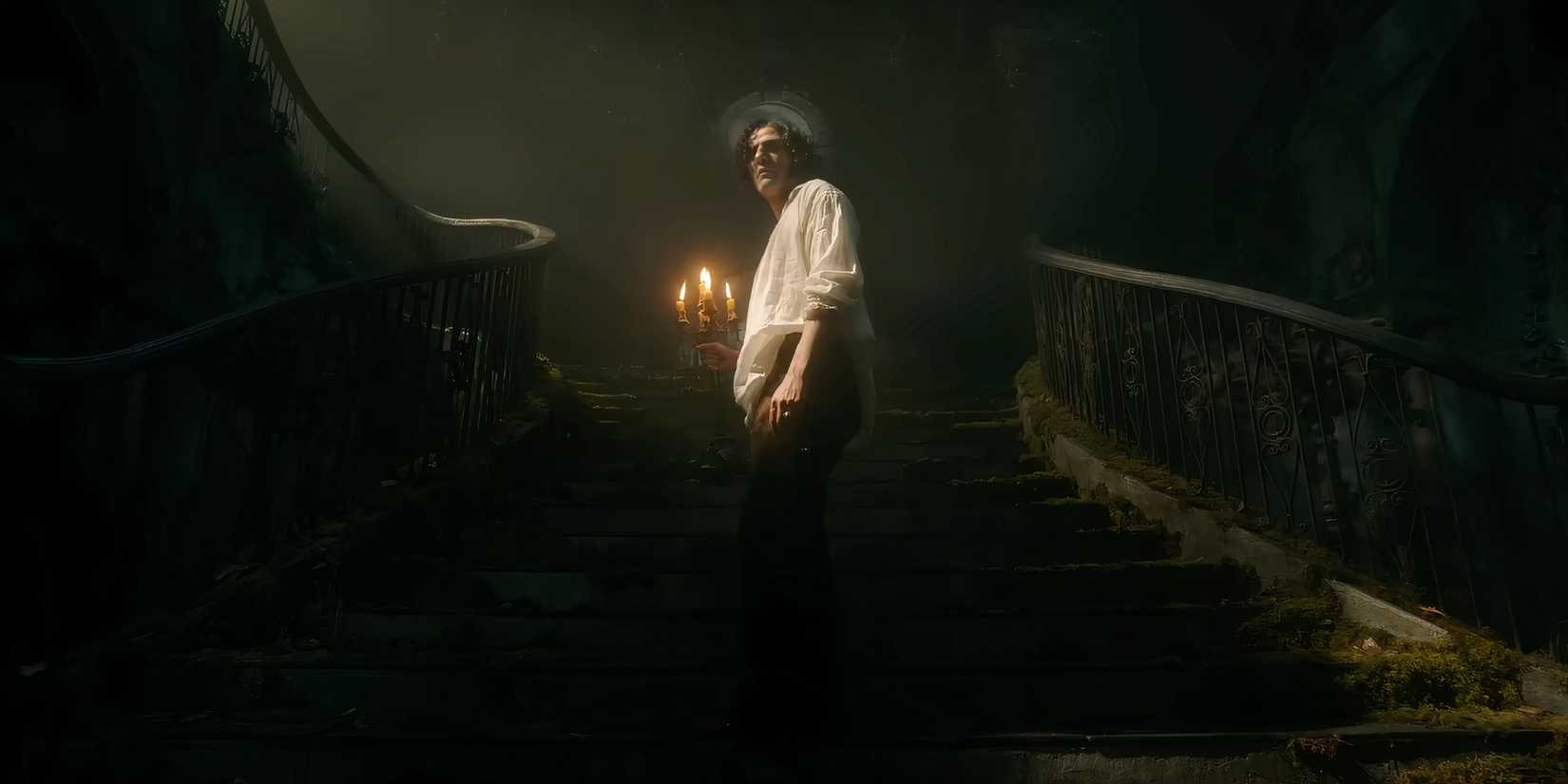Guillermo del Toro’s upcoming adaptation Frankenstein, based on Marry Shelley’s gothic novel of the same name, follows accomplished scientist Victor Frankenstein as he executes a monstrous experiment. Blinded by hubris and driven solely by his ego, Victor brings a man-made creature to life, which soon brings about his downfall.
Over the years, del Toro has made his adoration for Shelley’s novel clear, claiming that he’s dreamed of adapting the story for decades. Now, due to a creative partnership with Netflix, del Toro finally has his chance to create a Frankenstein adaptation in his own image, an adaptation that fans anticipate to be truly faithful to its source material.
The film’s trailer only supports this hope, showcasing the inclusion of details from the text that have been largely ignored in previous cinematic adaptations, with its characters seen in the Arctic, a key location often overlooked in previous movies.
Del Toro’s high praise of Shelley’s novel, alongside scenes showcased in the trailer, hints that this adaptation will stand out from previous attempts due to its accuracy of the text. Not just in its use of locations and characters, but most importantly, its inclusion of the book’s many nuanced and largely ignored themes.
Diving Deep Into What Defines ‘Monstrosity’
The definition of monstrosity is heavily explored within Shelley’s original novel, challenging the conventional notions of what defines a monster. Both the character of Victor Frankenstein and his creation showcase acts of monstrosity, with the creature representing a more conventionally accepted definition of a monster, through his grotesque appearance and violent actions.
Victor, on the other hand, represents a crueler, hidden form of monstrosity through his reprehensible construction and later abandonment of the creature. Frankenstein and his creation act as foils of one another, showcasing the duality of monstrosity, in turn questioning the true meaning of the term ‘monster’.
By challenging the audience’s perception of a monster, the text provokes questions about the complexity of human nature and the true source of evil, a theme seen in del Toro’s previous cinematic endeavors. Del Toro’s films have blurred the line between man and monster, as seen in The Shape of Water, with the film’s amphibious creature and ruthless antagonist, who could both be classed as monsters.
Del Toro’s understanding of this heavy theme landed him an Academy Award for Best Director, setting him up perfectly to adapt this angle of the source material, a prediction seemingly confirmed within Frankenstein’s trailer, with text stating “Only Monsters Play God.”
A Cynical Look At ‘Ambition’
Victor Frankenstein is portrayed as a careless intellectual in the original book, a man blinded by his ruthless pursuit of knowledge. Although his goals are initially achieved through the creation of the monster, his ego and thirst for power over the natural world later come at a great cost, seeing the scientist shunned and isolated by his fellow man.
The text acts as a cautionary tale, criticizing the ruthless pursuit of knowledge and showcasing the consequences one may endure when prioritizing ambition over responsibility. Del Toro’s Frankenstein will likely explore this theme throughout its runtime, a prediction seemingly confirmed by the film’s trailer, where a distraught Victor Frankenstein claims to be the ‘devil’ that made the creature.
Having explored the clash of science and the supernatural previously, it can be expected that del Toro will once again visit this idea within Frankenstein. By casting Oscar Isaac as Frankenstein, an actor praised for portraying flawed characters such as Llewyn Davis in Inside Llewyn Davis, del Toro has seemingly cast the perfect candidate to explore the nuanced theme of ambition throughout the film.
Highlighting The Consequences Of ‘Prejudice’
Shelley’s Novel warns of the consequences of prejudice through the treatment of the creature within the story. As a result of its hideous appearance, the monster is shunned by society, forcing it into deep isolation, alienating the beast from the world. Due to its isolation, Victor’s once-innocent creation is corrupted by loneliness, ultimately leading to the creature’s violent actions while seeking revenge on humanity.
Frankenstein acts as a cautionary tale of the ramifications of prejudice, a sentiment reflected by much of del Toro’s previous work, with beast-like creatures in Hellboy and The Shape of Water becoming downtrodden and therefore violent as a result of misunderstanding. Despite their appearances and aggressive outbursts, del Toro has maintained these individuals as deeply sympathetic characters, ones that audiences can easily become emotionally invested in.
Del Toro’s previous focus on small-mindedness and perceptions of the misunderstood suggests he will hone in on the theme of prejudice within his upcoming Frankenstein, with this project being the culmination of his fight against misguided judgment. Using his experience working with misunderstood creatures in the past, it is likely that del Toro will craft his most heartbreaking character yet through his depiction of Frankenstein’s monster.
The Desperate Pursuit Of ‘Love’
Within Shelley’s Frankenstein, the monster’s pursuit of love is a central theme, with constant rejections ultimately turning the creature violent. The novel showcases the basic human need for love and companionship through Frankenstein’s monster, portraying a lack of connection with others as a corrupting force, leading the beast to become an aggressive tyrant.
Del Toro has included unconventional relationships within his previous work, most notably in The Shape of Water, showcasing a relationship between a humanoid amphibian and a human woman. Through these gothic romances, del Toro has showcased different perspectives on relationships between man and monster, directly tackling themes of love and fear.
As a director, del Toro has near enough mastered distorted and unconventional portrayals of love and the lust for connection. Within Frankenstein, del Toro has the opportunity to bring this theme to the big screen once again, using his experience handling monstrous characters with intense feelings of love as a springboard to create his most heartbreaking monster yet.








